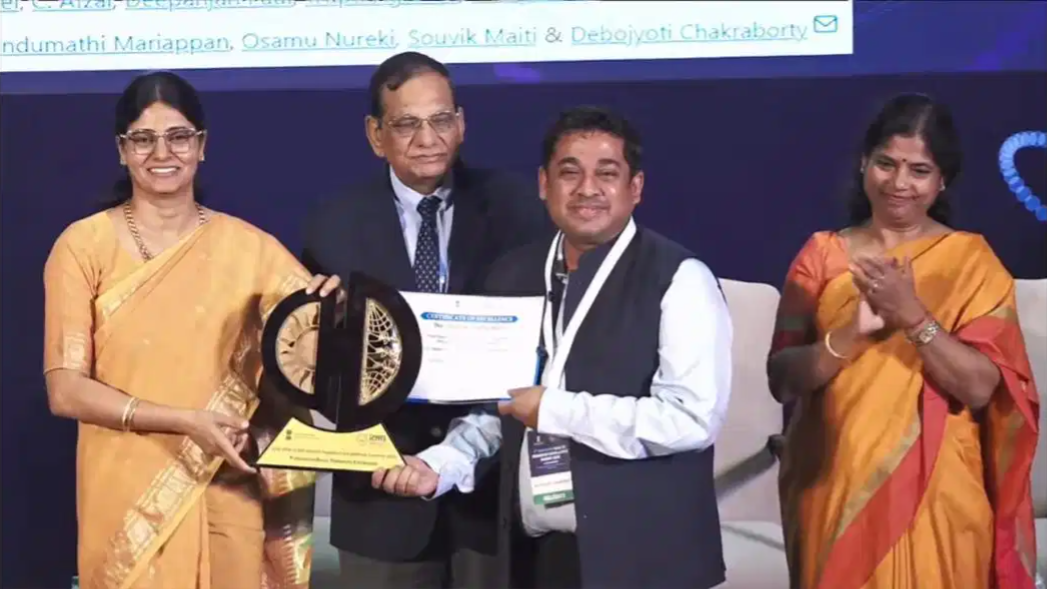2025 has seen a huge boost to the ambition of India to develop home-grown disruptive biotechnology when the DHR-ICMR Health Research Excellence Award 2025 (Gold) was awarded to the work describing enFnCas9, the first indigenously developed CRISPR genome editing system in India.
The recognition came at the 2nd DHR–ICMR Health Research Excellence Summit 2025, held in New Delhi on November 13–14.
The event, organised by the Department of Health Research (DHR) and the Indian Council of Medical Research (ICMR), brought together leading scientists and policymakers.
ALSO READ| Can AIs be used for stalking? Here's what the tools themselves say
Union Minister of State for Health and Family Welfare Smt. Anupriya Singh Patel inaugurated the summit.
The award-winning study, published in Nature Communications in 2024, was led by Dr Sundaram Acharya, working under the scientific leadership of Dr Debojyoti Chakraborty, and supported by Dr Souvik Maiti, the Director of IGIB.
What makes enFnCas9 historic
The fact that it is not derived from the Western CRISPR systems that currently dominate the global biotech industry. Instead, the team engineered a kinetically enhanced variant of Francisella novicida Cas9, creating a suite of genome-editing tools with remarkable accuracy.
The work has led to a granted US patent, one of India’s earliest internationally protected CRISPR assets. The technology has been licensed to the Serum Institute of India.
ALSO READ| Realme GT 8 Pro launching in India: What to expect?
Earlier this week, Union Minister Dr Jitendra Singh formally inaugurated the enFnCas9 licensing initiative, calling it “a prime example of India’s capacity to generate and scale frontier technologies.”
The peer review on DHR-ICMR reflects a change of direction that India is no longer a consumer of gene editing technology, but an international competitor of CRISPR technologies.











